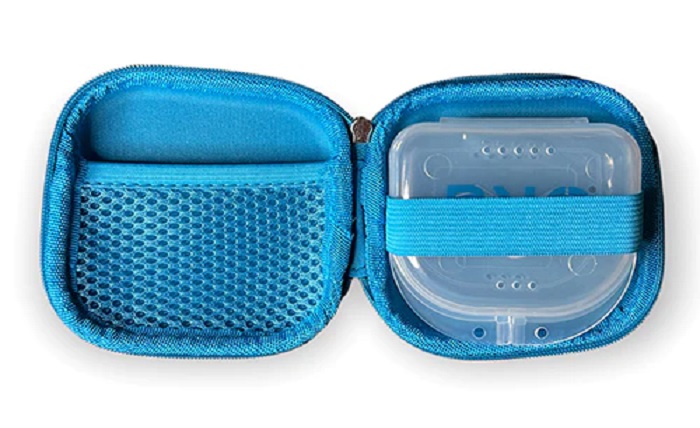Do you often wake up with a sore jaw, a headache, or tooth sensitivity? If so, you might be suffering from bruxism, a condition that causes you to clench or grind your teeth during sleep. Bruxism can damage your teeth, cause facial pain, and affect your quality of life. Fortunately, there is a simple and effective way to protect your teeth and reduce your discomfort: using a brux night guard.
A brux night guard is a custom-made device that fits over your upper or lower teeth and creates a barrier between them. It prevents your teeth from rubbing against each other and absorbs the pressure of your jaw muscles. By wearing a brux night guard, you can:
- Prevent tooth wear and enamel erosion
- Reduce the risk of tooth fractures, chips, and cracks
- Alleviate jaw pain and tension
- Improve your sleep quality and comfort
- Save money on dental treatments and repairs
In this blog post, we will explain how bruxism affects your oral health, how to choose the right brux night guard for you, and how to care for your night guard properly.
How Bruxism Affects Your Oral Health
Bruxism is a common problem that affects about 10% of adults and 15% of children. It can be caused by various factors, such as stress, anxiety, sleep disorders, medications, or misaligned teeth. Bruxism can occur during the day or at night, but nocturnal bruxism is more harmful because you are not aware of it and cannot control it.
When you clench or grind your teeth at night, you exert a force that is up to 10 times stronger than normal chewing. This can cause:
- Tooth wear and enamel erosion: Your teeth lose their protective layer and become more sensitive to hot, cold, or sweet stimuli. You may also notice changes in the shape, size, or color of your teeth.
- Tooth fractures, chips, and cracks: Your teeth become weaker and more prone to breaking. You may need dental fillings, crowns, or implants to restore them.
- Jaw pain and tension: Your jaw muscles become overworked and inflamed. You may experience pain in your jaw joint (temporomandibular joint or TMJ), earaches, headaches, or neck pain.
- Sleep quality and comfort: Your bruxism can disrupt your sleep cycle and make you feel tired, irritable, or depressed. You may also disturb your partner with the noise of your grinding.
How to Choose the Right Brux Night Guard for You
If you suspect that you have bruxism, you should consult your dentist for a diagnosis and treatment plan. Your dentist can examine your teeth and jaw and recommend the best type of night guard for you. There are different types of night guards available on the market, such as:
- Soft night guards: These are made of flexible plastic and are easy to wear and adjust. They are suitable for mild to moderate bruxers who do not have severe tooth damage or jaw pain.
- Hard night guards: These are made of rigid acrylic and are more durable and stable. They are suitable for severe bruxers who have significant tooth damage or jaw pain.
- Dual-laminate night guards: These are made of a combination of soft and hard materials. They have a soft inner layer that cushions the teeth and a hard outer layer that resists wear and tear. They are suitable for moderate to severe bruxers who want both comfort and protection.
The most important thing to consider when choosing a night guard is the fit. A poorly fitted night guard can cause more harm than good by shifting your bite, irritating your gums, or interfering with your breathing. That’s why it’s best to get a custom-made night guard from your dentist rather than buying an over-the-counter one. A custom-made night guard will:
- Fit snugly over your teeth and stay in place
- Be comfortable and easy to wear
- Be made of high-quality materials that are safe and biocompatible
- Be designed according to your specific needs and preferences
How to Care for Your Night Guard Properly
Once you get your night guard, you should follow these tips to keep it clean and functional:
- Rinse it with water before and after each use
- Brush it gently with a soft toothbrush and mild soap or denture cleaner
- Dry it thoroughly with a soft cloth or paper towel
- Store it in a ventilated case away from heat and sunlight
- Avoid exposing it to alcohol, bleach, or other harsh chemicals
- Replace it every 6 months to 2 years depending on the wear and tear
By caring for your night guard properly, you can extend its lifespan and effectiveness.
Conclusion
Bruxism is a serious condition that can damage your teeth, cause jaw pain, and affect your sleep quality. A brux night guard is a simple and effective solution that can protect your teeth and reduce your discomfort. If you think you have bruxism, you should visit your dentist and get a custom-made night guard that fits your needs and preferences. By wearing a brux night guard, you can improve your oral health and your overall well-being.





